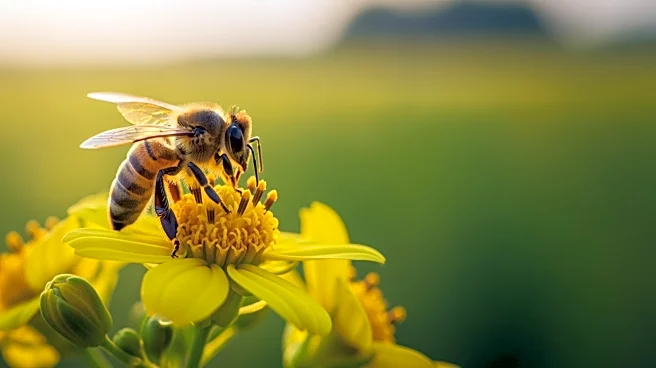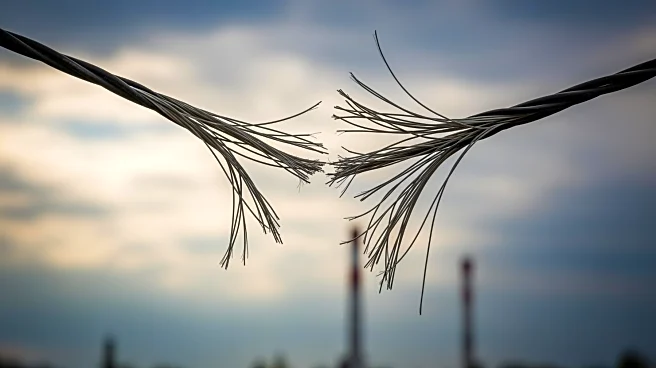What's Happening?
World Kindness Day, celebrated on November 13, encourages individuals to perform intentional acts of kindness. The day was established in 1998 by a consortium of charities to promote compassion in a world
often dominated by cruelty and conflict. Dr. Maymunah Yusuf Kadiri, a neuro-psychiatrist, recalls a moment of kindness during her time in an emergency room, where a cleaner offered her a biscuit and water, reminding her of the humanity in healing. Similarly, Dr. Junaid Nabi, a physician-scientist, emphasizes the contagious nature of kindness, citing studies that show how acts of kindness can spread through social networks, creating a ripple effect. These stories illustrate the profound impact that small acts of kindness can have, not only on individuals but also on communities.
Why It's Important?
The significance of World Kindness Day lies in its ability to foster a culture of empathy and compassion, which can lead to positive societal changes. Acts of kindness have been shown to improve mental health and create a sense of community, as people who receive kindness are more likely to pass it on. This 'social contagion' of kindness can lead to a more supportive and connected society. In a world facing numerous challenges, including social and economic disparities, kindness can serve as a powerful tool for bridging gaps and promoting understanding. By encouraging people to be kind, World Kindness Day contributes to the creation of a more harmonious and resilient society.
What's Next?
As World Kindness Day continues to gain recognition, it is likely to inspire more initiatives aimed at promoting kindness and empathy. Organizations and individuals may develop programs and campaigns to encourage acts of kindness throughout the year, not just on November 13. This could lead to increased collaboration between communities and a greater emphasis on mental health and well-being. Additionally, educational institutions might incorporate kindness into their curricula, teaching students the value of empathy and compassion from a young age. The ongoing celebration of World Kindness Day has the potential to create lasting changes in societal attitudes and behaviors.
Beyond the Headlines
The celebration of World Kindness Day also raises important ethical and cultural questions about the nature of kindness and its role in society. It challenges individuals to consider whether kindness is innate or learned, and how cultural differences influence perceptions of compassion. Furthermore, the day highlights the importance of recognizing and valuing the contributions of often overlooked individuals, such as the cleaner who helped Dr. Kadiri. By acknowledging these acts, society can begin to appreciate the diverse ways in which kindness manifests and the profound impact it can have on people's lives.








